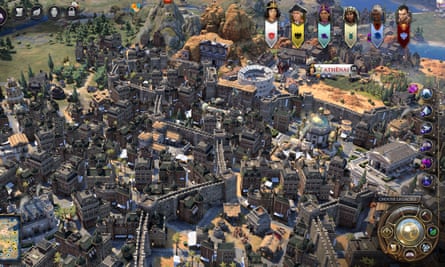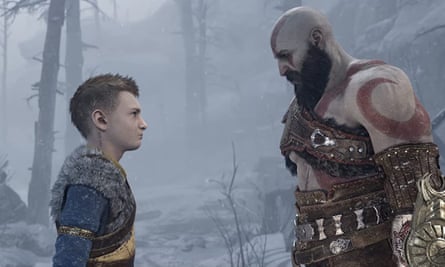For months now I have been in the thrall of Pokémon Trading Card Pocket. It’s a devilishly slick blend of card-collecting and pared-down battling that has had me obediently opening the app on my phone at least twice a day since it launched. The virtual cards are beautifully done; the rare art cards especially, with their pastoral scenes of Pokémon in their natural habitats. I have spent many hours on the battles, too, honing decks and chasing win streaks to earn myself victory emblems. I got most of my friends into it, anticipating the day when its makers at DeNa would finally enable trading so I could fill the last couple of holes in my collection.
This week, on the day that the trading went live and an expansion full of pretty new cards was introduced, I quit. I made a couple of trades for the Venosaur Ex and Machamp Ex that had evaded my grasp despite opening hundreds of packs, took a screenshot of the “collection complete” screen, and I haven’t opened it since. I’m done.
I didn’t quit in protest at the fiddly, expensive nature of the new trading feature, or because the new cards mostly feature monsters from an era of Pokémon that holds no nostalgic power for me. I’ve just suddenly had enough. I was enjoying every minute I spent with the game … until I wasn’t. Usually, you know you’re done with a game when you’ve finished it, but in this era of the forever game, we have to choose when to quit. Sometimes this happens overnight for me. One day I’m enjoying a game, the next day I’m sick of it.
Inconveniently, I realise it about 75% of the way through a game’s campaign. Especially with open-world titles, the best hours are the ones in the middle, where you’ve played enough to understand a game’s unique ideas and systems but not enough to have totally mastered them; there comes a point where you know you’re nearing the endgame. Suddenly, the friction between me and the game world – the “stickiness”, as game designers refer to it – is gone, and everything feels smooth and easy, and I lose interest. (This is why I love FromSoftware’s games so much: from Dark Souls to Elden Ring – they never get easy or predictable.)

Here is a small selection of games from the past year that I abandoned in this way, not long before the end: Indiana Jones and the Great Circle; Dragon’s Dogma 2; Paper Mario: the Thousand-Year Door; Zelda: Echoes of Wisdom; Like a Dragon: Infinite Wealth. I could sit down with any of these for a couple of evenings and polish them off – some of them I already have, months after leaving them unfinished – but it always feels like a chore. Meanwhile, I’ve played Lonely Mountains: Snow Riders, Balatro and Hades long past their completion points, because the stickiness is still there.
I often get readers writing to ask when it’s OK to quit a game. For me, the answer is “whenever you stop having fun”. I rarely quit because I get stuck; instead I quit when I stop getting stuck, when I sense I’ve seen everything meaningful that a game has to offer. I think it’s easy to keep playing something that’s lost its appeal out of a sense of obligation.
Studies of trophy and achievement stats over the years have found that only between 15-35% of players (pdf) actually complete any given game. I feel for the developers making hours of content that people might never see, but there is just so much entertainment available to everyone that you can hardly blame people for not finding the time for all of it. Some players take pride in finishing every game that they start, but for the rest of us? It’s OK to stop.
I felt briefly bereft when I was done with Pokémon Trading Card Game, the same feeling I get when I finish a good novel. Part of me also felt relieved to be freed of the daily habit. It’s opened a little space in my day for something new – and something new is always what I’m looking for when I pick up a video game.
What to play

Two enormous, time-eating historical games are out this week: Kingdom Come Deliverance 2, a pitilessly challenging simulation of 16th-century Bohemia that really rubs your face into the horse dung at the start, and Civilization VII, the next in the venerable, life-ruiningly compulsive strategy series that challenges you to rerun human history from the start. (The latter might seem especially appealing right now, as we appear to have made an almighty mess of it.)
Available on: PC, Xbox, PlayStation 5
Estimated playtime: 100+ hours
What to read

-
The third Sonic movie has just become the second highest-grossing video game movie ever, behind 2023’s Mario film, bringing in $462.5m. (I swallowed my 90s Nintendo kid pride and took my kids to see it over Christmas. It’s fine.) It’s also on track to overtake Bruce Almighty as Jim Carrey’s highest-grossing movie; if that happens, it’ll make a great pub quiz question.
-
At IGN, Rebekah Valentine investigates the phenomenon of copycat slop games that have been appearing in droves on console digital stores, and gets this incredible quote: “Once I’m in the door, I could make Fart Fart Boobie Fart: The Game and maybe it would eventually get taken down.”
-
Among the higher-profile winners at the Grammys was a video game soundtrack: interestingly, this year’s award went to composer Winifred Phillips for the soundtrack to Wizardry, an RPG from … 1981. Polygon has an explainer about how a decades-old game ended up getting remade and winning a Grammy.
after newsletter promotion
What to click
-
Kingdom Come: Deliverance 2 – it’s a hard-knock life in medieval Bohemia | ★★★★☆
-
Civilization VII – your empire strikes back in glorious new detail | ★★★★★
-
Indiana Jones and the Great Circle fulfilled all my Nazi-punching fantasies | Dominik Diamond
-
Citizen Sleeper 2: Starward Vector – we’re putting together a crew | ★★★★☆
Question Block

This week’s question comes from Natalie:
“It’s taken me many games played and unfinished before I’ve realised what all of my favourites have had in common: a compelling narrative. Can you recommend me some of the best storytelling of all video-gaming time?”
Video game stories come in so many forms that this is a tough question to answer: many of the best stories in games are the ones we find for ourselves. That said, games correspondent Keith Stuart and I have recently been updating our best-of lists for games on all of the current consoles, so my favourite narratives of recent years are fresh in my mind. The authored stories that I remember best from the current gaming generation are: The Last of Us Parts I and II; God of War and its sequel; Immortality; and Alan Wake 2 (mostly for the way it’s told). Great shorter stories that you can play on a Nintendo Switch include: Oxenfree; Wandersong; To the Moon; Night in the Woods; A Space for the Unbound and Röki. You might also want to try Citizen Sleeper if you like sci-fi. As for the all-timers: Undertale, Chrono Trigger, Portal and its sequel, What Remains of Edith Finch and Fallout New Vegas are up there for me.
What would be your top three? Please do email in to tell me on [email protected] – and ask me more questions. I apply myself to serious and silly video game questions with equal rigour.

.png) 3 months ago
44
3 months ago
44

















































